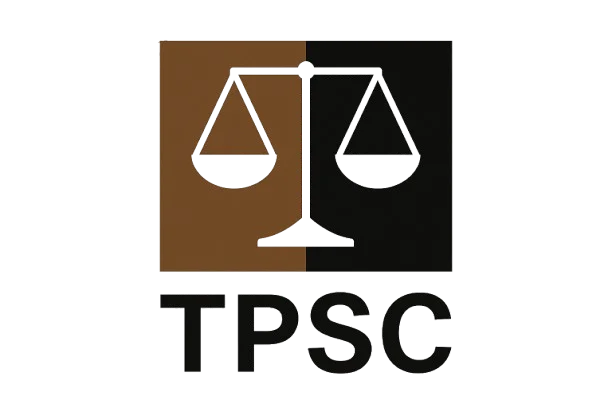Transfer Petition in Supreme Court
Home / Transfer Petition in SC
Transfer Petition in Supreme Court of India – Procedure, Grounds, and Format
Introduction
A transfer petition in Supreme Court is a legal remedy that allows shifting a case from one court to another for the sake of fairness, convenience, or justice. The Supreme Court of India holds the exclusive power to transfer civil, criminal, and matrimonial cases between states or High Courts.
This provision safeguards litigants from bias, undue influence, or hardship, ensuring that every party gets a fair chance to present their case. Transfer petitions are commonly used in divorce cases, custody battles, maintenance disputes, criminal trials, and business litigations.
Legal Provisions for Transfer Petition in Supreme Court
The authority of the Supreme Court to transfer cases is derived from different laws depending on the nature of the matter:
- Civil Cases → Section 25, Code of Civil Procedure (CPC), 1908
- Criminal Cases → Section 406, Code of Criminal Procedure (CrPC), 1973
- Matrimonial/Family Cases → Covered under civil jurisdiction; Court often considers convenience of the wife.
👉 This means whether it’s a civil dispute, matrimonial issue, or criminal trial, the Supreme Court can transfer cases between states or from one High Court to another.
Table Of Content
- Transfer Petition in Supreme Court
- Legal Provisions for Transfer Petition in Supreme Court
- Grounds for Filing a Transfer Petition in Supreme Court:
- Case Law Reference:
- Procedure for Filing a Transfer Petition
- Format of Transfer Petition:
- Types of Transfer Petitions
- Advantages of Filing a Transfer Petition:
- Limitations:
- Important Judgments on Transfer Petitions:
- Conclusion:
- FAQ'S
- Contact Us
Grounds for Filing a Transfer Petition in Supreme Court:
The Court will only transfer a case if strong and valid reasons are shown. Some of the common grounds are:
- Apprehension of Bias – If a party fears unfair treatment in the current court.
- Convenience of Parties – Especially in matrimonial disputes, the Court considers the convenience of the wife.
- Safety Concerns – If attending proceedings at a particular location is unsafe.
- Multiple Proceedings – When similar cases are pending in different courts.
- Public Interest – Cases involving larger public importance may be transferred to avoid conflicting judgments.
⚖️ Case Law Reference:
In Maneka Sanjay Gandhi vs. Rani Jethmalani (1979), the Supreme Court held that transfer is allowed only when the apprehension of bias is reasonable and not imaginary.
We Help to Solve Your Transfer Petition in Supreme Court
Procedure for Filing a Transfer Petition
Here’s a step-by-step guide to filing a Transfer Petition in the Supreme Court of India:
- Drafting the Petition – Mention details of the case, current court, and valid grounds for transfer.
- Supporting Affidavit – File an affidavit verifying the facts.
- Filing in Supreme Court Registry – Submit with prescribed fees and documents through an Advocate-on-Record (AoR).
- Issuance of Notice – The opposite party receives notice to present their reply.
- Hearing – Both sides argue before the Supreme Court.
- Order – If justified, the Supreme Court orders transfer, binding on all lower courts.
Format of Transfer Petition:
A transfer petition generally includes:
- Title: “In the Supreme Court of India (Civil/Criminal Original Jurisdiction)”
- Case Details: Parties, case number, current court details
- Synopsis & List of Dates: Chronological background of the case
- Grounds for Transfer: Legal and factual reasons
- Prayer: Request for transfer to a specific court
- Affidavit: Verification by petitioner
Types of Transfer Petitions
- Matrimonial Transfer Petition – Common in divorce, custody, and maintenance cases.
- Civil Transfer Petition – Involving property, contract, or business disputes.
- Criminal Transfer Petition – For criminal trials, appeals, or investigations.
Advantages of Filing a Transfer Petition:
- Ensures fair trial and impartial judgment
- Reduces hardship for weaker parties (especially women)
- Consolidates multiple cases into one jurisdiction
- Boosts faith in the justice system
Limitations:
- Cannot be filed on trivial grounds
- Requires legal expenses and professional assistance
- The Court exercises discretion carefully and may reject weak petitions
Important Judgments on Transfer Petitions:
- Guda Vijayalakshmi vs. Guda Ramachandra Sekhara Sastry (1981): Convenience of wife given priority in matrimonial cases.
- K. Anbazhagan vs. State of Karnataka (2015): High-profile corruption case transferred for ensuring fair trial.
Conclusion:
A transfer petition in Supreme Court is a powerful legal remedy that ensures justice is not denied due to bias, influence, or geographical inconvenience. Whether it is a civil, criminal, or matrimonial case, the Supreme Court carefully evaluates all grounds before granting a transfer.
For individuals seeking fairness and impartiality, this provision is a crucial safeguard within the Indian judicial system. With the right legal guidance and strong grounds, filing a transfer petition can help protect your rights and ensure justice is serve
FAQs on Transfer Petition in Supreme Court:
We understand that you may have questions before getting started, and we’re here to help. Our FAQ section addresses the most common queries related to our services, processes, timelines, and support. Whether you’re seeking clarity on legal procedures, documentation, or how we work, this section is designed to provide quick and helpful answers. If you don’t find what you’re looking for, feel free to reach out to our team directly—we’re always happy to assist.
Any party to a case who feels disadvantaged in the current jurisdiction can file through an Advocate-on-Record (AoR).
The time varies depending on the urgency, complexity, and response of the opposite party. Some transfers happen in weeks, while others may take months.
Yes. The Supreme Court generally favors the convenience of the wife in matrimonial disputes.
Costs include court fees and advocate charges, which vary depending on the case and lawyer engaged.
Yes. Once the Supreme Court orders transfer, it is binding on all lower courts.
